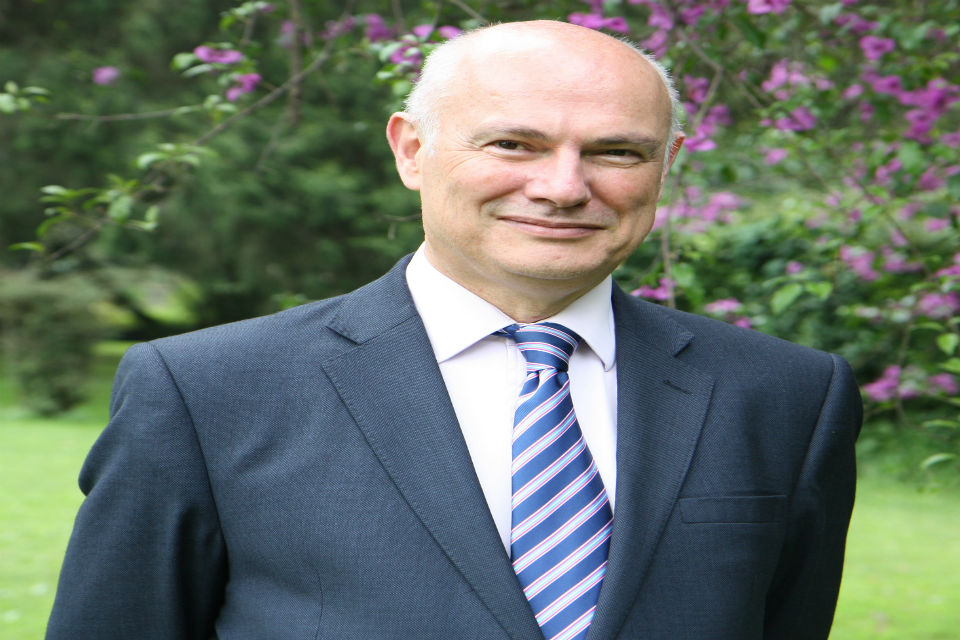DFID’s IFUSE Course
DFID’s Extractive Industries Executive Course on Environmental, Land, Health and Safety, and Social Governance

Pleased to welcome you all to this course, funded and delivered through DFID’s Investment Facility for Utilising UK Specialist Expertise. IFUSE supplies UK expertise to support business environment improvement in DFID’s partner countries. This particular course has been organised to assist Governments in those countries which need targeted world-class assistance to improve their private sector investment climate. And it is delivered by UK civil service specialists from British Geological Survey, The Coal Authority, Health and Safety Laboratory, FCO and Ordnance Survey.
This course aims to raise awareness of key environmental, land, health and safety and social governance issues in the extractive industries (gas, oil and mining) and potential policy and regulatory solutions. It sets out how effective governance in these areas of natural resource management can help attract investors and promote growth, while mitigating and managing some of the key risks.
The importance of sustainable extraction of gas, oil and minerals to developing economies cannot be underestimated. If development of the extractives sector is to benefit more than one generation, social and environmental considerations need to be at the heart of government policy, to prevent long term negative impacts on people and the environment, upon which the poorest depend. Properly managed, extractives in resource-rich countries have the potential to end poverty, and a well governed extractives sector can be a pathway to prosperity, representing a once-in-a-lifetime opportunity for some countries to graduate from aid.
The minerals super-cycle, that since 2000 saw commodity prices more than double, ended as the global recession kicked in. This resulted in reduced exploration activities and reduced investment globally and in Africa in particular.
Yet despite the current oil price, there will continue to be a global demand for hydrocarbons for several decades to come, and a need for significant new investment to meet this demand. The International Energy Agency (IEA) estimates a 35% increase in global energy demand from 2010 to 2035, and $674 billion was spent in 2012 on finding and developing new hydrocarbon reserves.
Growth and urbanisation in China are, however, likely to continue, albeit at lower rates, economic recovery in Europe and the US is underway and growth in parts of Africa remains strong. The mining industry expects that global demand for hydrocarbons will surpass supply this year or shortly after; lack of exploration activity strongly hints at untapped potential, and new world-class deposits are likely to be found in Africa, with an estimated 80% of Africa’s potential still untapped. Having said this, Ethiopia’s Climate Resilient Green Economy strategy is a model to Africa of an alternative type of development – aiming to achieve middle-income status by 2025 with zero net carbon growth.
But whether we are thinking of oil and gas or minerals, effective social and environmental governance is one of the top considerations for responsible private sector investments in the extractive industries - whether in terms of achieving acceptance from the communities where they operate or indeed protecting their prized international reputations from negative publicity. Companies and investors have a clear role to ensure effective management of the environmental and social risks of their operations. Government policies, systems and processes relating to land, environment and communities are also essential to allow for robust planning, monitoring and enforcement. Without both roles - public and private sector - being met responsibly, the long-term impacts on the environment, human health, livelihoods, and security can be significant - with subsequent increased costs to both government and industry; opportunity costs to peoples and their development; and time delays for investments to see revenues flow.
So why is the UK Government taking a particular interest and organising this course?
During our G8 Presidency in 2013, Prime Minister David Cameron pushed for better governance of the extractives sector, encouraging increased membership of the Extractives Industry Transparency Initiative (EITI) by G8 countries, and committing to the UK doing the same. In response to this, the DFID Secretary of State Justine Greening approved a scale-up of DFID’s work on extractive industries, given the potential for extractives in resource-rich countries to end poverty.
DFID supports relevant international standards such as EITI and the Natural Resource Charter, and has a number of established bilateral programmes in Africa to help governments gain maximum benefit from extractives for growth and development. DFID’s country programmes include Ghana’s community foundation funded by the oil sector; institutional strengthening and technical assistance to the Ministry of Mines in Kenya; support to formalise the artisanal mining sector in Zimbabwe; and a facility which promotes oil sector transparency in Nigeria. DFID is also the second biggest funder to the African Legal Support Facility (ALSF), which offers legal advice to African governments dealing with extractives companies.
More generally, the UK has a long history in both mining and oil and gas extraction, and has long-established government institutions which work together effectively to manage the sector. We have a wealth of expertise within our civil service which can support African governments with geological and mapping services, building environmental management capabilities, improving health and safety systems or improving governance. The IFUSE programme allows African governments to tap into this expertise, which will be showcased during this week, and we hope you will want to consider requesting follow-on, short-term technical placements of UK civil servants from the different delivery organisations into African organisations to help address country-specific challenges discussed during the course.
I wish you a useful, interactive week.